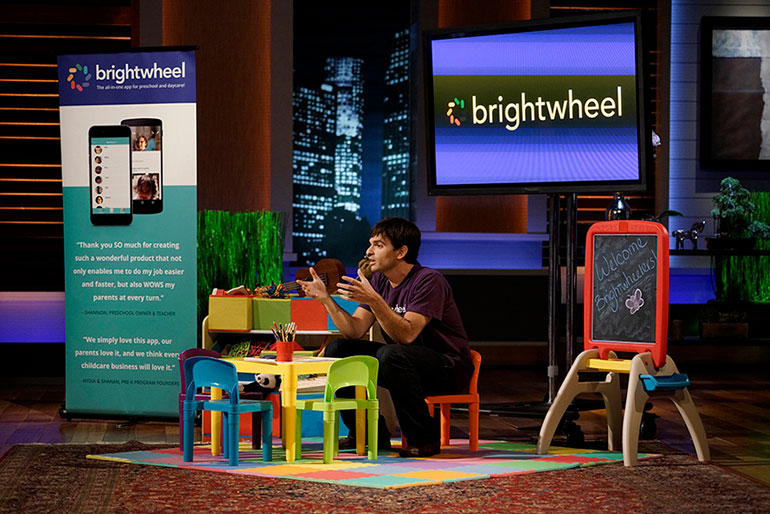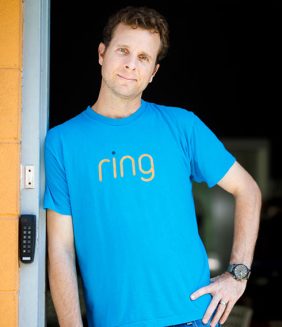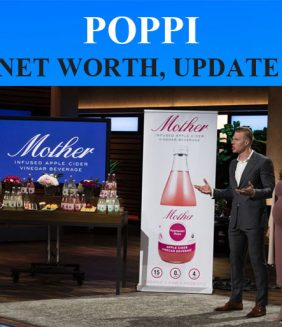When Dave Vasen dropped his toddler off at daycare for the first time, he realized he had almost no window into her day. What did she eat? Did she nap? How was story time? Gap after gap showed up in the daily paper notes teachers sent home, and Dave—who had worked in tech—figured families and schools deserved something far better. That “there has to be a better way” moment became Brightwheel, a simple smartphone platform that helps childcare centers run their businesses and lets parents watch their children’s days unfold in real time.
From pilot project to nationwide rollout
Dave began small in 2014, testing a beta version across ten U.S. preschools. The goals were basic: streamline attendance, billing, and classroom photos for staff while sending instant updates to parents. Teachers tapped their phones instead of filling out clipboards, and moms, dads, and grandparents saw moments—from lunchtime to finger‑painting—seconds after they happened. By the time Brightwheel aired on Shark Tank in early 2016, it was already in 2,500 schools and had raised $2.2 million in seed funding.
Brightwheel’s core app has always stayed free. The business earns money through premium add‑ons that centers can choose, such as advanced billing tools, document storage, and expanded tech support. Because the entry price is zero, even tiny home‑based daycares can try it; once staff depend on it, many upgrade to unlock the extras.
A lively night in the Tank
For the Shark Tank pitch—Season 7, Episode 724—Dave asked the panel for $400,000 in exchange for 4 percent equity, valuing Brightwheel at $10 million. The large valuation drew eye‑rolls, but the demo sparked interest. Kevin O’Leary quickly offered the full cash for 10 percent. Chris Sacca countered at the original valuation: $400,000 for 4.85 percent. The banter escalated when Dave wondered aloud if two Sharks together might bring even more firepower; Sacca joked that the others had little to add, and Mark Cuban bristled. After a playful “Shark fight” chant from Daymond John, Cuban and Sacca teamed up for $600,000 in return for 6.67 percent—exactly what Dave wanted: strategic investors plus a richer cash infusion. He shook hands on the spot.
What happened after the cameras stopped rolling
Television drama faded, but Brightwheel’s momentum only grew. Cuban and Sacca wrote another $10 million check in 2017, then helped pull in $21 million from Mark Zuckerberg’s Chan Zuckerberg Initiative in 2018. Three years later, Addition, Emerson Collective, Next Play Ventures, and other big names joined a $55 million round.
The company also landed an on‑air update in Season 9. Dave shared that Brightwheel had jumped from 2,500 to more than 25,000 schools worldwide and had rolled out a paid plan featuring two‑way in‑app messaging, parent self‑check‑in, and document management—features that saved staff time while deepening family engagement. During that segment, Cuban and Sacca introduced Brightwheel to The Learning Care Group, America’s largest for‑profit childcare provider. That courtship ended in a three‑year, $1 million agreement—Sacca even predicted it might become the biggest deal in the show’s history.
Acquisition and a soaring valuation
Growth wasn’t limited to software. In April 2023, Brightwheel acquired Experience Early Learning, the curriculum company behind the well‑known Mother Goose Time program. By adding lesson plans and assessments to its toolbox, Brightwheel could serve as both the administrative “operating system” and the educational engine for early‑childhood programs. Investors liked the strategy: by January 2023 analysts pegged Brightwheel’s valuation at over $600 million, and by July 2024 that figure had climbed past $700 million, with annual revenue around $75 million.
Why schools keep signing up
Ease of use. Teachers can upload a photo, log a diaper change, or send a quick note in seconds. Less paperwork means more time on the floor with kids.
Parent peace of mind. Real‑time pings answer “What’s my child doing right now?” without disrupting classrooms. Families can invite relatives, creating a private feed of milestones that rivals social media—without the ads.
Business health. Automated invoices, attendance reports, and digital check‑ins replace spreadsheets and clipboards, helping centers operate like modern small businesses instead of pen‑and‑paper outposts.
Flexible pricing. Because the base platform is free, Brightwheel faces little resistance during adoption. Once schools rely on it, many happily pay for premium bells and whistles that save even more administrative hours.
Challenges along the way
Running a two‑sided platform—one audience of educators, another of families—means balancing features for both. Sacca once warned Dave on air that targeted advertising to parents could be lucrative but risky; Brightwheel has stuck to its promise of zero ads so far. The company instead focuses on selling value‑added services to schools rather than monetizing family attention. That stance builds trust, though it removes an obvious revenue path.
Competition is heating up as well. Start‑ups such as HiMama, Procare, and Kinderlime offer overlapping toolsets. Brightwheel’s answer has been relentless product improvement—integrated curriculum, payroll partnerships, and deeper analytics—plus the star power and networks of Cuban and Sacca.
Looking ahead
Today Brightwheel employs a team of educators, engineers, and customer‑success staff who share one goal: help early‑childhood professionals spend less time on paperwork and more time nurturing kids. The company says it will keep the core parent‑teacher connection free while expanding premium tools for multi‑site operators and franchise groups. International expansion is also on the road map, along with richer data insights that show administrators exactly how lesson plans translate into developmental gains.
With $75 million in annual revenue, hundreds of employees, and a valuation topping $700 million, Brightwheel has traveled far from Dave Vasen’s first daycare drop‑off. Yet its mission remains simple: let educators teach and let families feel close, even while they’re apart.
If the past decade is any hint, the childcare industry—and the children it serves—will continue benefiting from that vision. In a space notorious for paper cubbies and sticky clipboards, Brightwheel brought the smartphone revolution to the classroom door and turned parental anxiety into a thriving business built on connection, transparency, and trust.
















